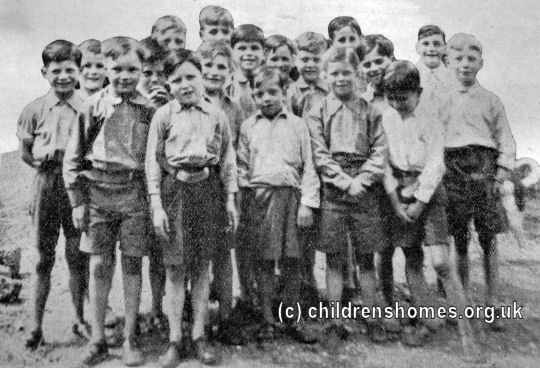The Waifs and Strays Story
The 1930s
After the resignation of Dr Westcott as Secretary in 1932, his place was filled by the then Assistant Secretary, Mr W.R. Vaughan who had originally joined the Society as an office boy. In order to have a clergyman in the most senior ranks of the Society, a new post of Clerical Secretary was created in 1933 and its first incumbent was none other than Edward Rudolf's eldest son, the Rev. Cyril Rudolf, who was seconded for the purpose by the Community of the Resurrection to which he belonged.
Following Edward Rudolf's death in 1933, the Society launched the Rudolf Memorial Appeal to raise funds for new home specialising in the care of children with behavioural problems or learning difficulties, what were then commonly referred to as 'backward' children. Being an area where the Society lacked experience, it was run in Association with the London Child Guidance Clinic. The first stage, a home for boys, was opened in 1935 at Clapham Park, followed in 1939 by one for girls at Dulwich.

Rudolf Memorial Home for Boys, Balham, 1935. © Peter Higginbotham
The Children and Young Persons Act of 1933 introduced a new type of institution for youngsters 'in trouble', the Approved School, which replaced the former dual system of Reformatories and Industrial Schools. At the request of the Home Office, the Society was asked to convert one of its homes as an Approved School and the St Mary's Home for Girls at Felixstowe was selected for this purpose. Following a further Home Office request, the St Augustine's Home for Boys at Sevenoaks was similarly redesignated.
In 1935, nine years after the 1926 Adoption Act which had been followed by the appearance of Adoption Societies, the Society made its first tentative steps into the field. In the same year, the Society launched its Grants Scheme which provided financial support to help single mothers board out their children in their local area.
Except where indicated, this page () © Peter Higginbotham. Contents may not be reproduced without permission.


